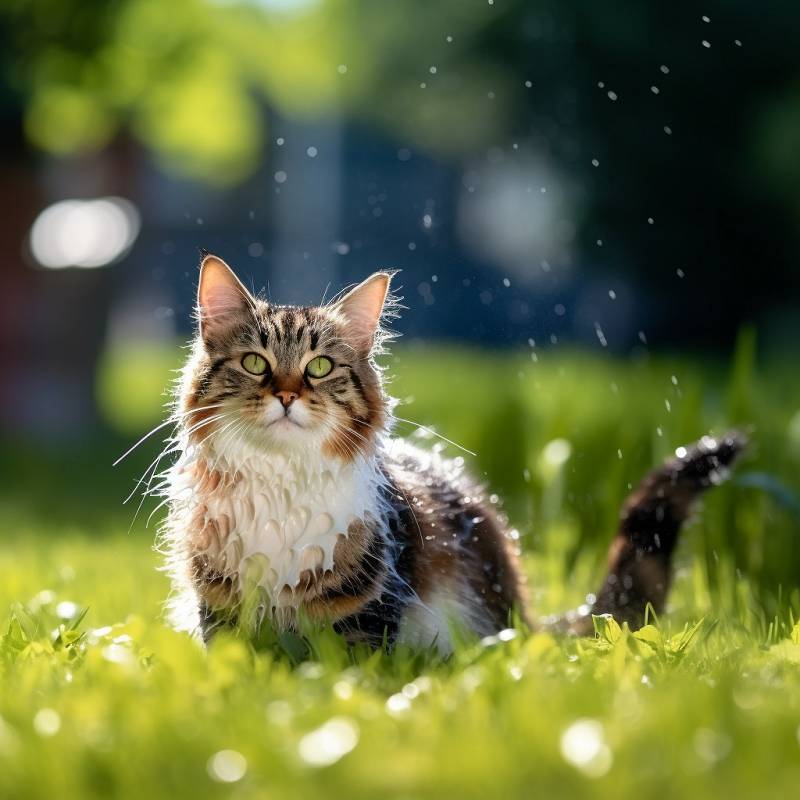 Introduction: As the temperatures rise, so does the concern for our furry companions. Cats, in particular, are sensitive to the sweltering heat, making them vulnerable to dehydration and heat stroke. In this article, we’ll explore how climate change affects our feline friends, especially as they age, and provide you with essential tips to ensure your cat stays cool, hydrated, and healthy during the hottest months.
Introduction: As the temperatures rise, so does the concern for our furry companions. Cats, in particular, are sensitive to the sweltering heat, making them vulnerable to dehydration and heat stroke. In this article, we’ll explore how climate change affects our feline friends, especially as they age, and provide you with essential tips to ensure your cat stays cool, hydrated, and healthy during the hottest months.
Feline Vulnerability to Heat: Whether you’re a climate change believer or not, there’s no denying that summers are becoming hotter. Cats are not well-equipped to handle extreme heat – their cooling mechanisms are limited. While humans can sweat to regulate temperature, cats can only sweat through their footpads and by panting, both of which are insufficient for cooling down effectively. When a cat resorts to panting, it’s a clear sign they’re on the brink of heat stroke.
Age-Related Challenges: As cats age, their internal systems may become less efficient, affecting their ability to stay hydrated. Starting as young as eight years old, cats may struggle to detect that their self-cooling technique of licking is causing excessive water loss. This can strain their kidneys and increase the risk of kidney failure, a condition that becomes more prevalent during the summer.
Preventive Measures for Cool Cats: Prevention is always the best course of action, and a few simple steps can make a world of difference for your feline companion during the hot months:
- Hydration is Key: Make sure your cat always has access to fresh water. If you notice your cat’s not drinking enough, consider getting a water fountain – the running water can be quite enticing.
- Wet ‘n’ Wild: If your cat is basking in the sun, lightly wet her fur with a damp cloth. This helps cool her down, preserves saliva, and encourages increased water intake as she licks herself dry.
- Frozen Delights: Frozen treats aren’t just for humans! Create icy treats by freezing flavored stock or small cat-friendly treats in ice cubes. This interactive way of cooling down can be both fun and hydrating.
- Stay Indoors: Keep your cat indoors during the hottest parts of the day. If you have air conditioning, make sure the dehumidifying effect isn’t causing extra water loss. If you don’t, consider creating a cool spot for your cat with good airflow and access to fresh water.
Prioritize Kidney Health: Kidney health is paramount for cats, especially during the summer. If you suspect your cat might have renal insufficiency or is over eight years old, schedule a simple urine test with your veterinarian. Regular monitoring can help catch any issues early and allow for prompt intervention.
Conclusion: Summer is a time for relaxation and fun, but it’s essential to remember that our furry companions require special attention during the heat. By being proactive and implementing these tips, you can ensure your beloved cat stays cool, hydrated, and comfortable throughout the summer. By taking these simple steps, you’re not just preventing heat-related issues – you’re also making sure your cat enjoys the season to the fullest.
